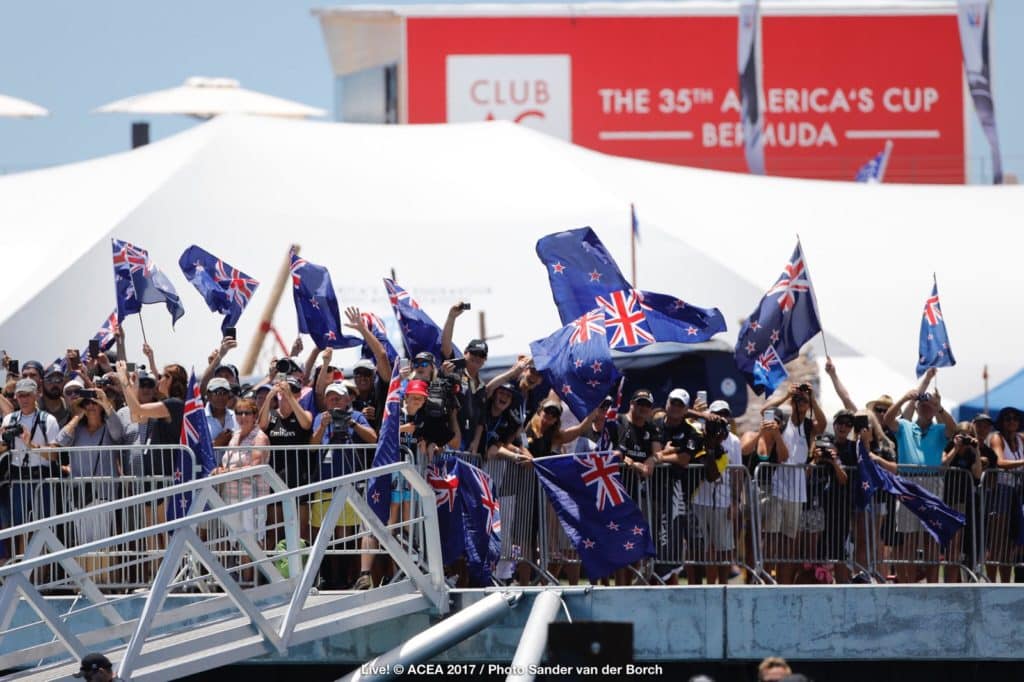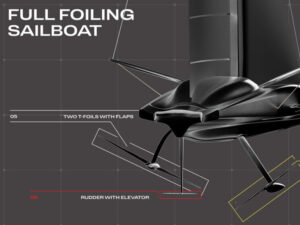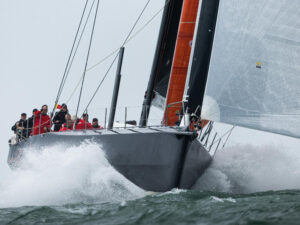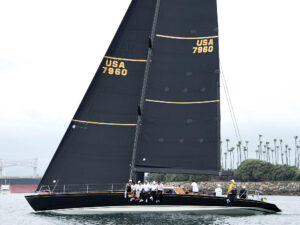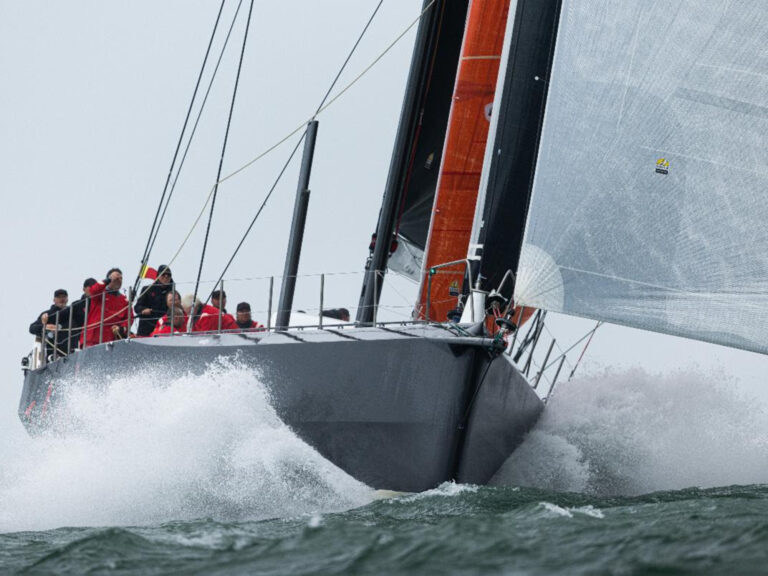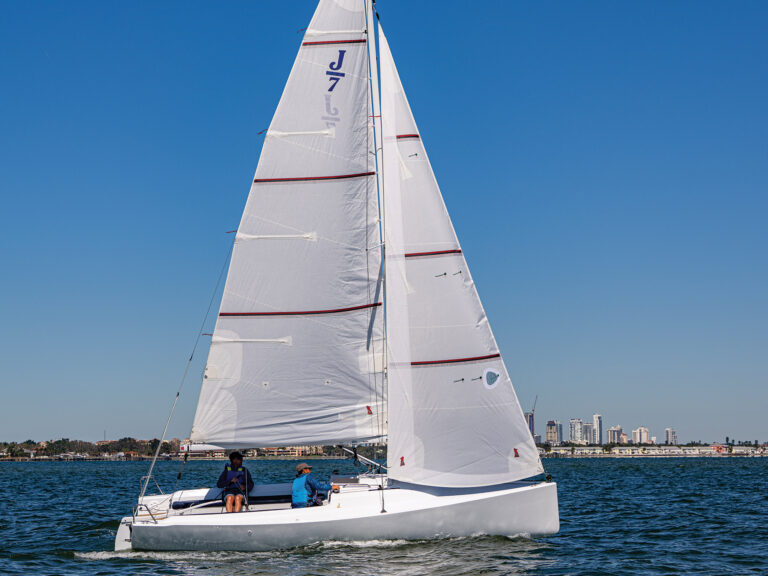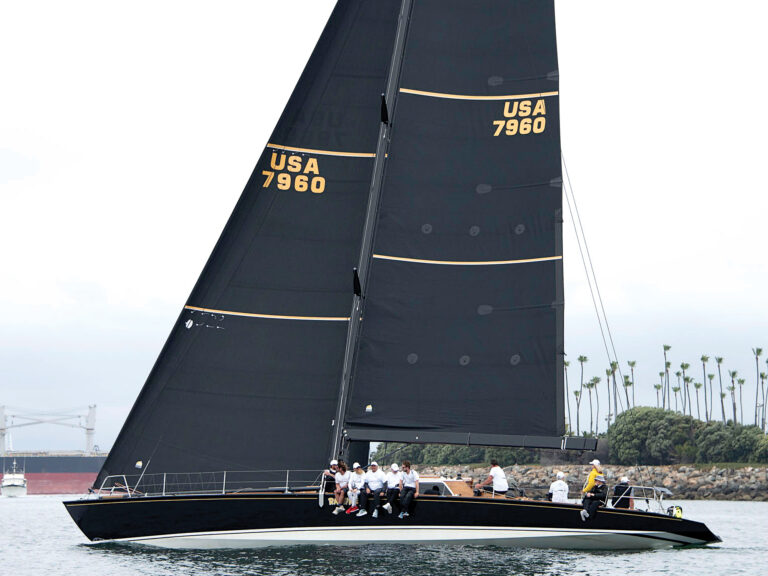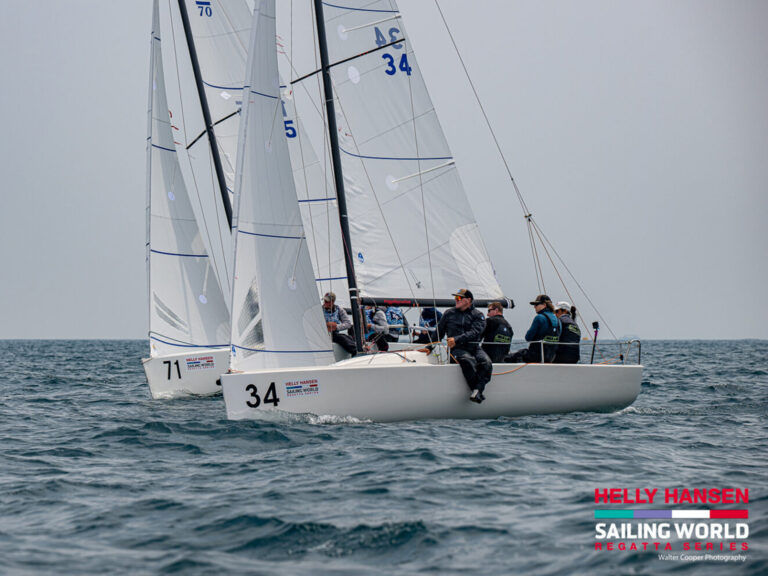
The best moment of the entire 35th America’s Cup Match so far?
That’s an easy one.
Today, as Emirates Team New Zealand helmsman Peter Burling foiled into a lethal hook in the start of the day’s second race, with Oracle a sitting black duck, he took his right hand off the steering wheel, glanced over at his rival and gave a friendly wave.
Maybe he was signaling Spithill to turn up, but I don’t think so.
It was more like… “Hello, Jimmy.”
And…goodbye.
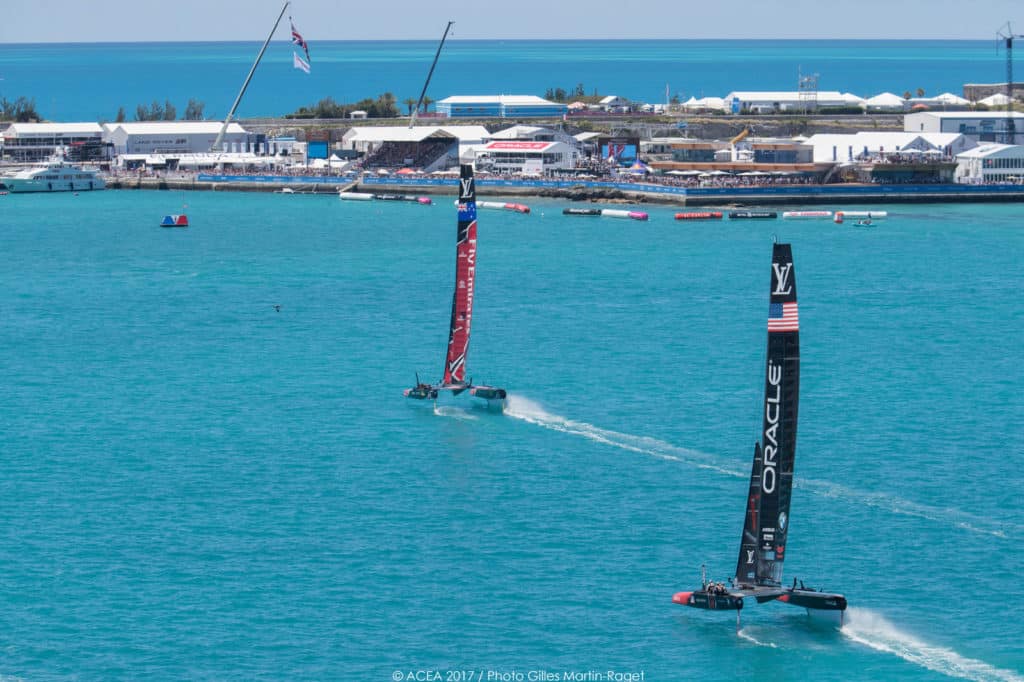
Off sped the Kiwis to another trouncing, bringing the series to 6 to 1 and onto match point tomorrow. One more win for New Zelaland and the Auld Mug gets a first-class ticket to Auckland.
Pre-start domination by Emirates Team New Zealand continues to leave Oracle Team USA fighting to get back into the race, and the Kiwis are not making it any easier, sailing seemingly flawless races. They’re making it look to easy. While helmsman Peter Burling continues to allude to mistakes, it’s impossible to spot them from afar. With 100-percent fly time and the ability to grab every shift that comes their way on an open racecourse, there is simply no stopping them once ahead.
Continued modifications to US-17, which are said to be lightening the boat and leading them to ever smaller appendages, have made the boat noticeably faster, or at least on par with the New Zealand boat, but it is more difficult to maneuver in down-speed situations.
“Speed is not free,” said Spithill in his pre-race broadcast interview, “the tradeoff is stability.”
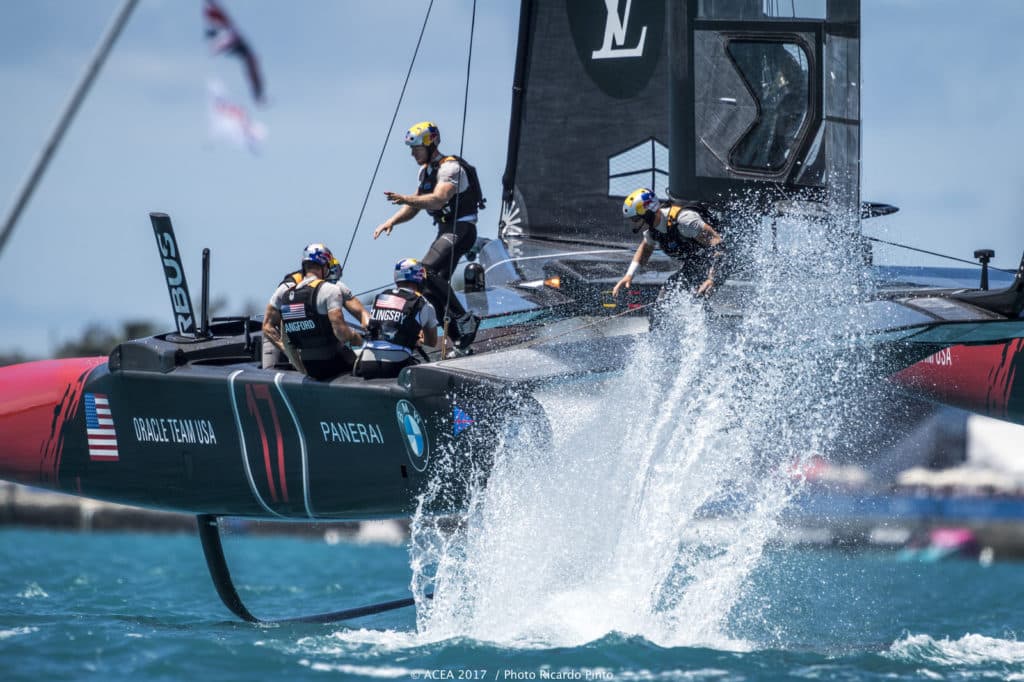
Oracle’s compromised setup reared its head in critical moments in both of the day’s pre-starts, as well as one jibe-rounding in which the boat skied, the rudders lost their bite, and the hulls came crashing down. With small foils, it takes forever (in an AC50 world) to get the boat going again.
Rewinding back to Race 7, the first of the day and sailed in 11 knots, Emirates Team New Zealand had port entry and promptly denied Oracle any chance of a hook, try as they may. Mr. Burling controlled his team’s destiny with an easy dive into his leeward happy place beneath US-17. With precision time-and-distance, Team New Zealand was running away to the start with 3 seconds on the ticker. In the heat of the moment, Spithill told his tactician Tom Slingsby the Kiwis were early and jabbed his wheel to the right, briefly heading away from the starting line.
Team New Zealand was spot on, and this one time, Oracle wasn’t over early. They were over late.
With their newfound speed, Oracle kept the racing close down Leg 2 and followed the New Zealanders around the right-hand mark, rolling into a quick tack to create a split. Simultaneous tacks and covers up the beat denied the black boat any opportunity to pass. But halfway up the leg, Burling sniffed a big left shift on the left side of the course. The New Zealanders let Mr. Spithill go, and once they tacked from the left boundary, the damage was done. In a blink, nearly 50 meters of separation between the two blossomed to 280. The New Zealanders cruised through Gate 4 and Oracle was a speck in the rearview mirror.

The shared sentiment at the Oracle Team USA dock out ceremony, with only family and friends in attendance, is that there is nothing left to do but, “send it.” But that didn’t happen in the first race, nor the second, Race 8, which will be placed into the Cup history books as the time when Emirates Team New Zealand stuck it to the Defender with flawless execution of the start, perfect boathandling, and an undeniably superior yacht. From the wing trim, to the bikes, to the foils and controls, to the raw young talent of its crew and shore team, Emirates Team New Zealand have all the pieces firmly in place.
Burling’s wave off (which he dodged when asked at the press conference) could be taken as a sign of the coming end to this show in Bermuda. Spithill and Co., have one more shot at it, “one race at a time,” he says, and so too does Burling, the difference being, one more for the Team New Zealand means sayonara to Bermuda, and likely to Cup as we know it today, with a tattered Framework Agreement left floating in Great Sound.
